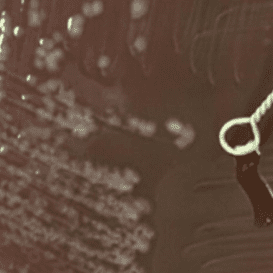
Get A Testing Quote
Proteus mirabilis
STRUCTURE AND PHYSIOLOGY
Proteus mirabilis is a Gram-negative, rod-shaped, motile bacterium that produces high levels of urease, a protein that hydrolyzes urea to ammonia. P. mirabilis can be detected in the lab by its unique characteristic to swarm when grown on agar plates. Additionally, this bacterium gives off a strong fishy odor.
TRANSMISSION AND DISEASE
P. mirabilis is commonly found in soil and water. It is commonly associated with urinary tract infections, particularly with the use of catheters in hospital settings. Untreated infections can lead to kidney stones, infections, and even failure. Proteus species have also been identified in wound infections, sepsis, and pneumonia.
DISINFECTION
P. mirabilis is susceptible to most antibiotics, but antibiotic-resistant strains are emerging.
NOTES
It is capable of surviving in environments of low nutrients and can tolerate to drying and high salt environments. Because of this and its ability to form biofilms, it is relevant when considering the disinfection of food contact surfaces. P. mirabilis can be detected in the lab by its unique characteristic to swarm when grown on agar plates.
REFERENCE(S)
“Proteus mirabilis”. BioMedHTC. Archived from the original on 26 September 2009. Bacteria of the species Proteus mirabilis are widely distributed in soil and water in the natural environment. In humans, Proteus is found as part of the normal flora of the gut….from”
Chen CY, Chen YH, Lu PL, Lin WR, Chen TC, Lin CY (June 2012). “Proteus mirabilis urinary tract infection and bacteremia: risk factors, clinical presentation, and outcomes”. Journal of Microbiology, Immunology, and Infection = Wei Mian Yu Gan Ran Za Zhi. 45 (3): 228–236. doi:10.1016/j.jmii.2011.11.007. PMID 22572004.
O’Hara CM, Brenner FW, Miller JM (October 2000). “Classification, identification, and clinical significance of Proteus, Providencia, and Morganella”. Clinical Microbiology Reviews. 13 (4): 534–46. doi:10.1128/CMR.13.4.534. PMC 88947. PMID 11023955.
Share

